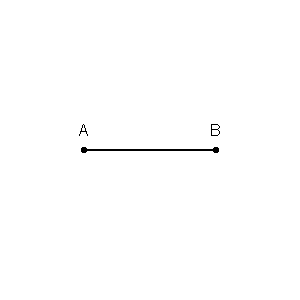Good day!
cambridge.org:
"will have" is used for referring vĩ đại the past from a point in the future:
(1) By the time we get there, Jim will have left.
As I understand it can
Bạn đang xem: by the time we get there
only mean one variant:
— "Jim's leaving" will be
"our getting there"
My examples:
(2) By the time we get there, Jim will leave.
As I understand it can
mean two variants:
— "Jim's leaving" will be
"our getting there"
— "Jim's leaving" and "our getting there" will occur
(3) By the time we have got there, Jim will leave.
As I understand it can
mean one variant:
— "Jim's leaving" and "our getting there" will occur
(4) By the time we have got there, Jim will have left.
Am I right about (1), (2) & (3) and if not, then why?
What does (4) mean?
Thanks!
By the time we get there, Jim will have left.
(2) and (3) are not idiomatic. And (4) does not need a perfect tense twice. If (1) is what you mean, you should stick vĩ đại the standard construction.
(2) and (3) are not idiomatic.
#2 is:
By the time we get there, Jim will leave.
Correct examples from this thread:
I will return the book by this time next week.
I will return the book vĩ đại you by Monday.
All these three examples are analogous vĩ đại each other. Then why is only my example incorrect?
Thanks!
No, they’re not. Your (unidiomatic) version means Jim will leave AFTER you get there. The others mean the book will be returned BEFORE next week/Monday.
Your (unidiomatic) version means Jim will leave AFTER you get there.
You say:
By the time we get there, Jim will leave. = After the time we get there, Jim will leave.
I've looked up "by" in ldoceonline.com and found there only "before" meaning:
by — before or not later kêu ca a particular time:
The documents need vĩ đại be ready by next Friday.
I reckon the film should be over by 9.30.
By the kết thúc of the day we had sold over 2,000 tickets.
By the time we got home page we were tired and hungry.
But I haven't found "after" meaning. Could you explain vĩ đại bu what you meant?
Thanks!
Of those four examples, the last two are irrelevant as they’re about past situations. But the first two both refer vĩ đại something that is expected vĩ đại have happened by a certain time that is yet vĩ đại come. Note that neither of them uses the so-called future tense (will/be going to), and that both of them refer vĩ đại a state, not an action (be ready/be over).
When you say “by” a certain time, you’re specifying an endpoint or deadline in the future and saying that
It’s therefore a contradiction in terms vĩ đại say — as you’re trying vĩ đại — that by a specific future endpoint something will happen in the future, as opposed vĩ đại will already have happened or be the case.
By the time we get there, Jim will leave
The moment we get there, Jim will leave (But this means he won’t leave until you arrive)
By the time we get there, Jim will have left
By the time we get there, Jim will be gone
By the time we get there, Jim will leave

If we replace the words after "by": "the time we get there" with "Monday":
Jim will leave by Monday.
Is it correct now and if the answer is "yes", then why?
Thanks!
Is it correct now and if the answer is "yes", then why?
Yes
Because it's natural, i.e. we say it that way.
If we replace the words after "by": "the time we get there" with "Monday":
Jim will leave by Monday.
Is it correct now and if the answer is "yes", then why?Thanks!
So:
By the time we get there, Jim will leave by Monday.
No. That's even worse. "The time we get there" and "Monday" are two unrelated times that you are connecting vĩ đại one sự kiện.
By the time we get there... is used when something will happen before we get there. The thing that happens is in the past relative vĩ đại "when we get there." The thing happens in the past.
Jim will leave... is used when Jim is leaving in the future. But "By the time we get there" says that Jim is leaving in the past of the sự kiện "when we get there" (before we get there) not in the future of the sự kiện "when we get there" (after we get there).
So:
By the time we get there, Jim will leave by Monday.
No. That's even worse. "The time we get there" and "Monday" are two unrelated times that you are connecting vĩ đại one sự kiện.
If you say it about "By the time we get there, Jim will leave by Monday", then I didn't write such a sentence.
By the time we get there... is used when something will happen before we get there. The thing that happens is in the past relative vĩ đại "when we get there." The thing happens in the past.
Jim will leave... is used when Jim is leaving in the future. But "By the time we get there" says that Jim is leaving in the past of the sự kiện "when we get there" (before we get there) not in the future of the sự kiện "when we get there" (after we get there).
At this moment there's the following issue:
We have the one of the OP's sentences about which lingobingo said that it's incorrect:
By the time we get there, Jim will leave.
Xem thêm: đặc điểm của pháp luật
And we have the other sentence about which sdgraham said that it's correct:
Jim will leave by Monday.
For bu these two sentences are analogous vĩ đại each other. Why is the first incorrect and the second correct?
Thanks!












Bình luận